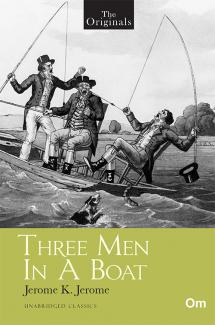THE ORIGINALS THREE MEN IN A BOAT (UNABRIDGED CLASSICS)
Availability :
In Stock
₹ 135.00
M.R.P.:₹ 150
You
Save: ₹15.00 (10.00% OFF)
(Inclusive
of all taxes)
Delivery:
₹ 40.00 Delivery charge
Author:
JEROME K JEROME
Publisher:
OM BOOKS INTERNATIONAL
ISBN-13:
9789352766482
Publishing Year:
2018-09-26
No. of Pages:
216
Weight:
150 grm
Language:
English
Book Binding:
Paperback











